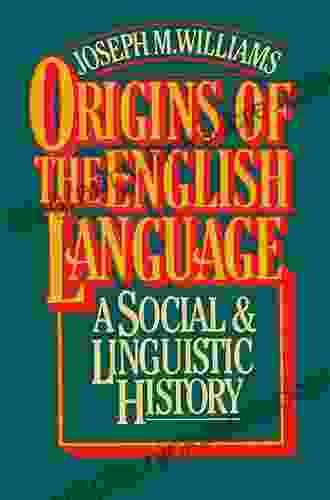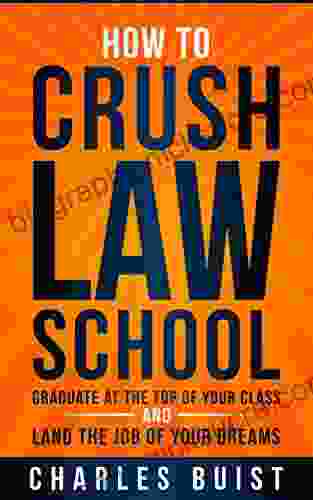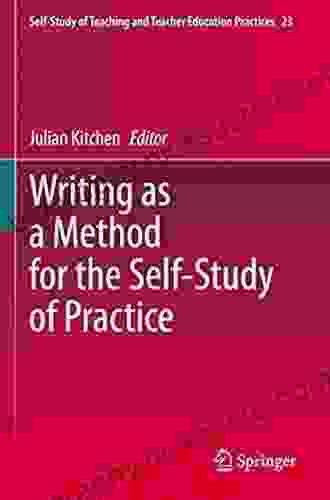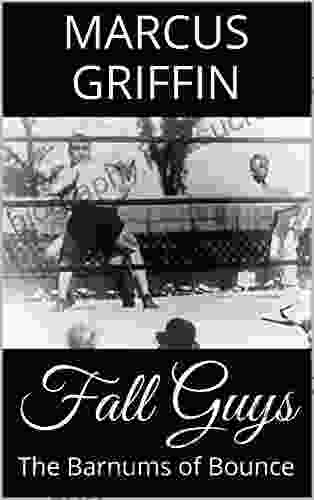The Enigmatic Quest for the Origins of Language: Unraveling the Roots of Human Communication

Language, the cornerstone of human civilization, enables us to express our thoughts, share ideas, and connect with others. But where and how did this extraordinary ability emerge? The search for the origins of language is an ongoing quest that has captivated scholars and scientists for centuries.
Theories on the Origins of Language
The Gesture Theory: This theory posits that language evolved from gestures. Primates and other animals use gestures to communicate, and it is hypothesized that early humans began to combine and vocalize these gestures, gradually developing a more complex system.
4.3 out of 5
| Language | : | English |
| File size | : | 556 KB |
| Text-to-Speech | : | Enabled |
| Enhanced typesetting | : | Enabled |
| Word Wise | : | Enabled |
| Print length | : | 372 pages |
| Screen Reader | : | Supported |
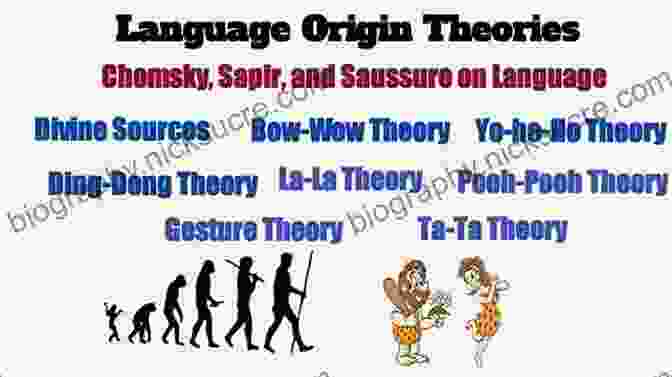
The Natural Selection Theory: This theory suggests that language evolved as a byproduct of natural selection. Mutations that enabled individuals to better communicate their needs and intentions were more likely to survive and pass on these traits to their offspring.
The Social Interaction Theory: This theory emphasizes the role of social interaction in the development of language. As humans interacted more frequently, they needed to find ways to coordinate their actions and share information. Language, therefore, emerged as a tool for social cooperation.
The Chomskyan Revolution: American linguist Noam Chomsky proposed a paradigm shift in the study of language. He argued that humans possess an innate language faculty, known as Universal Grammar (UG),which provides them with a blueprint for acquiring any language.
Evidence and Research
The Fossil Record: While physical evidence of early language is scarce, researchers have analyzed fossilized hominid remains and archaeological artifacts to infer the evolution of language. For instance, the hyoid bone, which helps support the tongue, has been found in early hominid fossils, suggesting the ability to produce complex vocalizations.
Neurolinguistics: The study of brain activity related to language has provided insights into the neural mechanisms underlying language. Studies have identified specific brain regions that are involved in language processing, such as Broca's area and Wernicke's area.
Child Language Acquisition: Observing children as they acquire and master language has yielded valuable clues about the innate capacities and learning mechanisms involved in language development. Children's ability to acquire grammar and vocabulary at a rapid pace supports the concept of UG.
Creole Languages: Creole languages, which develop when people from different linguistic backgrounds need to communicate, offer a unique opportunity to examine the emergence of language. Creole languages often exhibit similarities in their grammatical structures and sound systems, providing evidence for universal principles in language.
Sign Languages: Sign languages used by deaf communities have also contributed to the study of language origins. Sign languages are fully developed languages with distinct grammar and vocabulary, demonstrating that language is not dependent on spoken words.
The Ongoing Debate
Despite significant progress, the search for the origins of language remains an ongoing debate. There is no single theory that fully explains the complexity of human language, and the interplay between genetics, environment, and social factors continues to be explored.
Some researchers focus on the biological underpinnings of language, while others emphasize the cognitive and cultural aspects. The debate between Chomsky's innate Universal Grammar and more empiricist approaches, such as Steven Pinker's "Language Instinct," is still actively discussed today.
The origins of language remain shrouded in mystery, but the quest to unravel this enigma continues to drive scientific inquiry and fascination. By delving into theories, analyzing evidence, and exploring different perspectives, we shed light on the extraordinary journey that brought forth the power of human communication.
As we continue to probe the depths of language, we not only gain a better understanding of our own species but also glimpse the fundamental nature of human cognition and our place in the world.
4.3 out of 5
| Language | : | English |
| File size | : | 556 KB |
| Text-to-Speech | : | Enabled |
| Enhanced typesetting | : | Enabled |
| Word Wise | : | Enabled |
| Print length | : | 372 pages |
| Screen Reader | : | Supported |
Do you want to contribute by writing guest posts on this blog?
Please contact us and send us a resume of previous articles that you have written.
 Fiction
Fiction Non Fiction
Non Fiction Romance
Romance Mystery
Mystery Thriller
Thriller SciFi
SciFi Fantasy
Fantasy Horror
Horror Biography
Biography Selfhelp
Selfhelp Business
Business History
History Classics
Classics Poetry
Poetry Childrens
Childrens Young Adult
Young Adult Educational
Educational Cooking
Cooking Travel
Travel Lifestyle
Lifestyle Spirituality
Spirituality Health
Health Fitness
Fitness Technology
Technology Science
Science Arts
Arts Crafts
Crafts DIY
DIY Gardening
Gardening Petcare
Petcare Pavla Kesslerova
Pavla Kesslerova Richard H Immerman
Richard H Immerman Mina Lebitz
Mina Lebitz Catherine Shainberg
Catherine Shainberg Graham R Gibbs
Graham R Gibbs Stanislas Dehaene
Stanislas Dehaene Eugene V Resnick
Eugene V Resnick Hill Gates
Hill Gates Ellen Lewin
Ellen Lewin Joanna Hunt
Joanna Hunt Chadd Vanzanten
Chadd Vanzanten Ron Lemaster
Ron Lemaster Matt Taddy
Matt Taddy Laura Pavlov
Laura Pavlov Steve Biddulph
Steve Biddulph Kara Tippetts
Kara Tippetts Kyle Butler
Kyle Butler Bill Milliken
Bill Milliken Craig Romano
Craig Romano Cynthia Levinson
Cynthia Levinson Monta Z Briant
Monta Z Briant Julie L Spencer
Julie L Spencer Eric Franklin
Eric Franklin C R Hallpike
C R Hallpike Shannon Reilly
Shannon Reilly Thomas Lumley
Thomas Lumley Jean Smith
Jean Smith Vincent Bossley
Vincent Bossley Ronald Wheeler
Ronald Wheeler Barbara Neiman
Barbara Neiman Hollis Lance Liebman
Hollis Lance Liebman Siddhartha Rao
Siddhartha Rao Charlotte Booth
Charlotte Booth Hunbatz Men
Hunbatz Men Mark Mayfield
Mark Mayfield Smart Reads
Smart Reads Ben Sedley
Ben Sedley Yuval Noah Harari
Yuval Noah Harari Daniel J Barrett
Daniel J Barrett Mia Scotland
Mia Scotland Larry Dane Brimner
Larry Dane Brimner Becca Anderson
Becca Anderson Karen Bush
Karen Bush Mick Conefrey
Mick Conefrey Dr Faith G Harper
Dr Faith G Harper Jessica Smartt
Jessica Smartt Paul Van Lierop
Paul Van Lierop Breanna Hayse
Breanna Hayse Joseph Schmuller
Joseph Schmuller Ben Povlow
Ben Povlow Barzin Pakandam
Barzin Pakandam Jeff Alt
Jeff Alt David Jamieson Bolder
David Jamieson Bolder Noah Brown
Noah Brown Erica B Marcus
Erica B Marcus James Koeper
James Koeper Boy Scouts Of America
Boy Scouts Of America Joshua G Shifrin
Joshua G Shifrin Barry Friedman
Barry Friedman Robin Knox Johnston
Robin Knox Johnston Hongyu Guo
Hongyu Guo Eddie Merrins
Eddie Merrins Sergei Urban
Sergei Urban Barbara Russell
Barbara Russell Ron Avery
Ron Avery Steven Rinella
Steven Rinella Steven Bell
Steven Bell John H Mcwhorter
John H Mcwhorter Jayanti Tambe
Jayanti Tambe Rick Joyner
Rick Joyner Joseph Alton M D
Joseph Alton M D Scarlett Thomas
Scarlett Thomas Casey Watson
Casey Watson Nick Townsend
Nick Townsend Otto Scharmer
Otto Scharmer Beau Bradbury
Beau Bradbury Tim Ingold
Tim Ingold Roanne Van Voorst
Roanne Van Voorst John J Robinson
John J Robinson Sampson Davis
Sampson Davis Baruch Englard
Baruch Englard Bruce Pascoe
Bruce Pascoe Fabien Clavel
Fabien Clavel Jennifer Traig
Jennifer Traig John Henry Phillips
John Henry Phillips Achille Rubini
Achille Rubini Robin Nixon
Robin Nixon Barbara Kennard
Barbara Kennard John Aldridge
John Aldridge Mike Swedenberg
Mike Swedenberg Mitch Prinstein
Mitch Prinstein Lock Gareth
Lock Gareth James M Collins
James M Collins St Louis Post Dispatch
St Louis Post Dispatch Dustin Salomon
Dustin Salomon Bob Holtzman
Bob Holtzman Stan Tekiela
Stan Tekiela Chris Bennett
Chris Bennett Marie Rutkoski
Marie Rutkoski David Aretha
David Aretha Oliver T Spedding
Oliver T Spedding Ascencia
Ascencia Philip Maffetone
Philip Maffetone Massimo Cossu Nicola Pirina
Massimo Cossu Nicola Pirina Nicholas Sparks
Nicholas Sparks James Syhabout
James Syhabout Chris Cage
Chris Cage Kathleen Masters
Kathleen Masters Thomas Bulfinch
Thomas Bulfinch Crystal Duffy
Crystal Duffy Toby A H Wilkinson
Toby A H Wilkinson Brandon Royal
Brandon Royal Editors Of Southern Living Magazine
Editors Of Southern Living Magazine Elizabeth George Speare
Elizabeth George Speare Tori Day
Tori Day Peter Wacht
Peter Wacht Jay Abramson
Jay Abramson Melissa Gomes
Melissa Gomes Maha Alkurdi
Maha Alkurdi Catherine J Allen
Catherine J Allen Rachel Dash
Rachel Dash Beau Miles
Beau Miles Debbie M Schell
Debbie M Schell Rebecca Rupp
Rebecca Rupp Wanda Priday
Wanda Priday Vanessa Garbin
Vanessa Garbin Jessica F Shumway
Jessica F Shumway Barbara Mertz
Barbara Mertz Richard Weissbourd
Richard Weissbourd Edith Grossman
Edith Grossman Diane Cardwell
Diane Cardwell Jeff Belanger
Jeff Belanger Justin Sirois
Justin Sirois Nichole Carpenter
Nichole Carpenter Harvey Wittenberg
Harvey Wittenberg Max Marchi
Max Marchi Barry Rabkin
Barry Rabkin Mark Rashid
Mark Rashid Linda Welters
Linda Welters Valerie Pollmann R
Valerie Pollmann R Basu Shanker
Basu Shanker Susan Nance
Susan Nance Mark Young
Mark Young Bernard Marr
Bernard Marr John Kimantas
John Kimantas David Taylor
David Taylor Deanna Roy
Deanna Roy Gabriyell Sarom
Gabriyell Sarom Suzanne Wylde
Suzanne Wylde Peter Martin
Peter Martin Ben Goldacre
Ben Goldacre Gary Soto
Gary Soto Kenton Kroker
Kenton Kroker Stefan Ecks
Stefan Ecks David Beaupre
David Beaupre William Wasserman
William Wasserman Scott Mactavish
Scott Mactavish Jonathan Kellerman
Jonathan Kellerman Debra Kilby
Debra Kilby Melissa Haag
Melissa Haag Cindy Post Senning
Cindy Post Senning Dave Karczynski
Dave Karczynski Timothy Pakron
Timothy Pakron Jen Houcek
Jen Houcek Monica Hesse
Monica Hesse Richard Harris
Richard Harris Jack Newman
Jack Newman John G Robertson
John G Robertson Bryan Peterson
Bryan Peterson Nicole Martin
Nicole Martin Jude Currivan
Jude Currivan Charles River Editors
Charles River Editors Barbara Bassot
Barbara Bassot Denton Salle
Denton Salle Constanze Niedermaier
Constanze Niedermaier Master Gamer
Master Gamer Babu The Panda
Babu The Panda Arny Alberts
Arny Alberts Violet Moller
Violet Moller Robert Hogan
Robert Hogan Charlie Shamp
Charlie Shamp J Michael Veron
J Michael Veron Rob Pope
Rob Pope Rachel Morgan
Rachel Morgan J Bruce Brackenridge
J Bruce Brackenridge Bill Mckibben
Bill Mckibben Rachel Smith
Rachel Smith Mark Twain
Mark Twain Richard Chun
Richard Chun Susan Scott
Susan Scott Thomas French
Thomas French Farzana Nayani
Farzana Nayani Christopher L Heuertz
Christopher L Heuertz Cara Koscinski
Cara Koscinski Robert Ardrey
Robert Ardrey Emily Chappell
Emily Chappell Beebe Bahrami
Beebe Bahrami Yang Kuang
Yang Kuang Sam Nadler
Sam Nadler David Starbuck Smith
David Starbuck Smith Chris Eberhart
Chris Eberhart Benita Bensch
Benita Bensch Ryan T White
Ryan T White David Klausmeyer
David Klausmeyer Barry J Kemp
Barry J Kemp Mike Allison
Mike Allison Martin Dugard
Martin Dugard T C Edge
T C Edge Gordon Witteveen
Gordon Witteveen Anthony Edwards
Anthony Edwards Geert Hofstede
Geert Hofstede Joshua Hammer
Joshua Hammer Ryan Higa
Ryan Higa Bashir Hosseini Jafari
Bashir Hosseini Jafari Betty Stone
Betty Stone J C Cervantes
J C Cervantes Tim Marshall
Tim Marshall Isabel Fonseca
Isabel Fonseca Chiara Sparks
Chiara Sparks Bonnie Tsui
Bonnie Tsui Carlo Collodi
Carlo Collodi Jennifer Pharr Davis
Jennifer Pharr Davis Elliott Vandruff
Elliott Vandruff John Whitman
John Whitman Eliza Reid
Eliza Reid Nadine Hays Pisani
Nadine Hays Pisani T H White
T H White Peter K Tyson
Peter K Tyson Jamie Margolin
Jamie Margolin Catherine M Cameron
Catherine M Cameron Barbara Gastel
Barbara Gastel Temple West
Temple West Brian Switek
Brian Switek Autumn Carpenter
Autumn Carpenter Beth Miller
Beth Miller Gay Robins
Gay Robins Yuki Mano
Yuki Mano Victor Seow
Victor Seow Kenneth Wilgus Phd
Kenneth Wilgus Phd David Abram
David Abram Basudeb Bhatta
Basudeb Bhatta Jim Fay
Jim Fay Fred Mitchell
Fred Mitchell Sam Kean
Sam Kean Dustin Hansen
Dustin Hansen Elizabeth Lockwood
Elizabeth Lockwood Jake Anderson
Jake Anderson Suzanne Leonhard
Suzanne Leonhard Ray Comfort
Ray Comfort Mark H Newman
Mark H Newman Shayla Black
Shayla Black Patrick Sweeney
Patrick Sweeney Emma Brockes
Emma Brockes William Byers
William Byers David A Bogart
David A Bogart Ralph Galeano
Ralph Galeano Sharon Dukett
Sharon Dukett Mike Stanton
Mike Stanton Donald Frias
Donald Frias Linda Carroll
Linda Carroll Ernie Morton
Ernie Morton Robin Mcmillan
Robin Mcmillan W Scott Elliot
W Scott Elliot James Randi
James Randi James C Radcliffe
James C Radcliffe Dave Rearwin
Dave Rearwin Richard J Dewhurst
Richard J Dewhurst Danny Staple
Danny Staple Cait Stevenson
Cait Stevenson Charles Soule
Charles Soule Ping Li
Ping Li Clifford Herriot
Clifford Herriot James Duggan
James Duggan Daniel T Willingham
Daniel T Willingham Linnea Dunne
Linnea Dunne Samantha Fitts
Samantha Fitts Rob Hutchings
Rob Hutchings Barbara Taylor
Barbara Taylor Diane Yancey
Diane Yancey Luke Gilkerson
Luke Gilkerson Dr Craig Malkin
Dr Craig Malkin Janna Levin
Janna Levin Richard Scott
Richard Scott Print Replica Kindle Edition
Print Replica Kindle Edition Daniel S Lobel Phd
Daniel S Lobel Phd Buddy Levy
Buddy Levy Susan Dennard
Susan Dennard Erica Schultz
Erica Schultz Blair Braverman
Blair Braverman Stephanie Fritz
Stephanie Fritz Martin Sternstein
Martin Sternstein Edward Lee
Edward Lee Kate Williams
Kate Williams W Hamilton Gibson
W Hamilton Gibson Ken Xiao
Ken Xiao Jaymin Eve
Jaymin Eve F William Lawvere
F William Lawvere Scott Reed
Scott Reed James Duthie
James Duthie Rachelle Zukerman
Rachelle Zukerman Ian Leslie
Ian Leslie Joanne Glenn
Joanne Glenn Daniel P Huerta
Daniel P Huerta Nina Manning
Nina Manning Titus M Kennedy
Titus M Kennedy Muhammad Zulqarnain
Muhammad Zulqarnain R L Medina
R L Medina Jesse Liberty
Jesse Liberty Candice Davie
Candice Davie Glenna Mageau
Glenna Mageau Mackenzi Lee
Mackenzi Lee Pat Shipman
Pat Shipman Malcolm Hebron
Malcolm Hebron Jill Brown
Jill Brown Wayne B Chandler
Wayne B Chandler Percy Boomer
Percy Boomer Sport Hour
Sport Hour Visual Arts
Visual Arts Barbara Illowsk
Barbara Illowsk Marshall Jon Fisher
Marshall Jon Fisher Helen Fisher
Helen Fisher Craig Lambert
Craig Lambert Jane Hardwicke Collings
Jane Hardwicke Collings Daniel M Koretz
Daniel M Koretz Marc Loy
Marc Loy Rob Rains
Rob Rains Tom Miller
Tom Miller John Quick
John Quick Kit Yates
Kit Yates Kindle Edition
Kindle Edition Burt L Standish
Burt L Standish Reelav Patel
Reelav Patel Edwin R Sherman
Edwin R Sherman John C Norcross
John C Norcross Scott Malthouse
Scott Malthouse Jade Barrett
Jade Barrett Jenn Mcallister
Jenn Mcallister Jack Andraka
Jack Andraka Lynn Mann
Lynn Mann Rebecca Solnit
Rebecca Solnit Barry Burd
Barry Burd Frederick Douglass Opie
Frederick Douglass Opie Barbara Ann Kipfer
Barbara Ann Kipfer Marco Grandis
Marco Grandis Michael Palin
Michael Palin Lily Collins
Lily Collins Rhonda Belle
Rhonda Belle Steven Hawthorne
Steven Hawthorne Leah Cullis
Leah Cullis John Lister Kaye
John Lister Kaye Robert A Baruch Bush
Robert A Baruch Bush Laura Ingalls Wilder
Laura Ingalls Wilder Craig Martin
Craig Martin Brian Gilbert
Brian Gilbert Emma Walker
Emma Walker Meghan L Marsac
Meghan L Marsac Joseph Epes Brown
Joseph Epes Brown Helen Kara
Helen Kara Kam Knight
Kam Knight Julie Buxbaum
Julie Buxbaum Mike Commito
Mike Commito Jenny Chandler
Jenny Chandler Jane Butel
Jane Butel Barbara Rogoff
Barbara Rogoff Lew Freedman
Lew Freedman Colleen Alexander Roberts
Colleen Alexander Roberts Lawrence Baldassaro
Lawrence Baldassaro Roy Porter
Roy Porter Bobbie Faulkner
Bobbie Faulkner Gordon H Chang
Gordon H Chang Khurshed Batliwala
Khurshed Batliwala Paul Doiron
Paul Doiron Howard Zinn
Howard Zinn Mary A Fristad
Mary A Fristad Geoffrey Finch
Geoffrey Finch S E Hinton
S E Hinton Pearson Education
Pearson Education V B Alekseev
V B Alekseev Steve Burrows
Steve Burrows Mike High
Mike High Nick Neely
Nick Neely Kara Goucher
Kara Goucher Mark Ellyatt
Mark Ellyatt Grey Owl
Grey Owl John Sandford
John Sandford Jeffrey Jensen Arnett
Jeffrey Jensen Arnett Randy Baker
Randy Baker Ben Collins
Ben Collins Erik J Brown
Erik J Brown Prince Asare
Prince Asare Michelle Rigler
Michelle Rigler Jim Wharton
Jim Wharton Jutta Schickore
Jutta Schickore Mike Loades
Mike Loades Chase Hill
Chase Hill Guy P Harrison
Guy P Harrison Ellen Notbohm
Ellen Notbohm Reprint Edition Kindle Edition
Reprint Edition Kindle Edition Alexandra Andrews
Alexandra Andrews Dan Golding
Dan Golding Chuck Missler
Chuck Missler Jennifer Estep
Jennifer Estep Chris Mooney
Chris Mooney George Macdonald
George Macdonald David Cockburn
David Cockburn Ryan A Pedigo
Ryan A Pedigo Brad Burns
Brad Burns Jeremy Sweet
Jeremy Sweet Barry Glassner
Barry Glassner Vanessa Ogden Moss
Vanessa Ogden Moss Leonard M Adkins
Leonard M Adkins Bridget Flynn Walker Phd
Bridget Flynn Walker Phd Scott Westerfeld
Scott Westerfeld Tami Anastasia
Tami Anastasia David Thomas
David Thomas Jenna Helland
Jenna Helland Eric Leiser
Eric Leiser Dr Michael P Masters
Dr Michael P Masters Margaret Owen
Margaret Owen Macauley Lord
Macauley Lord Leslie Stager
Leslie Stager Trish Kuffner
Trish Kuffner Nancy E Willard
Nancy E Willard Bagele Chilisa
Bagele Chilisa P J Agness
P J Agness Donald R Gallo
Donald R Gallo Jonathan Bergmann
Jonathan Bergmann Barry Johnston
Barry Johnston Gary Lincoff
Gary Lincoff Cary J Griffith
Cary J Griffith S K Gupta
S K Gupta Nicholas Wolterstorff
Nicholas Wolterstorff Stephen J Bavolek
Stephen J Bavolek Leon Mccarron
Leon Mccarron William H Frey
William H Frey Jean Illsley Clarke
Jean Illsley Clarke Janis Keyser
Janis Keyser Molly E Lee
Molly E Lee John Garrity
John Garrity Alastair Hannay
Alastair Hannay Nick Bollettieri
Nick Bollettieri Proper Education Group
Proper Education Group Simon Spurrier
Simon Spurrier David Burch
David Burch Eric Engle
Eric Engle Charles Buist
Charles Buist Christine Kenneally
Christine Kenneally Michael Wood
Michael Wood James Kilgo
James Kilgo Sam Cowen
Sam Cowen Conor Nolan
Conor Nolan Christopher Taylor Ma Lmft
Christopher Taylor Ma Lmft Sean Mcindoe
Sean Mcindoe Mykel Hawke
Mykel Hawke Arnold G Nelson
Arnold G Nelson Spencer Wells
Spencer Wells Tara Brach
Tara Brach Holger Schutkowski
Holger Schutkowski Kate Darling
Kate Darling Diane Musho Hamilton
Diane Musho Hamilton Richard Meadows
Richard Meadows Leia Stone
Leia Stone Lewis Thomas
Lewis Thomas Stephen K Sanderson
Stephen K Sanderson Dan R Lynch
Dan R Lynch Farley Mowat
Farley Mowat Sara Shepard
Sara Shepard Graham Farmelo
Graham Farmelo Mark Kurlansky
Mark Kurlansky Bb
Bb Julian I Graubart
Julian I Graubart Rowan Jacobsen
Rowan Jacobsen John D Barrow
John D Barrow Clayton King
Clayton King Gerald Beaudry
Gerald Beaudry Cheryl Erwin
Cheryl Erwin Allan V Horwitz
Allan V Horwitz Charlotte Browne
Charlotte Browne Dacher Keltner
Dacher Keltner Mike Massie
Mike Massie Sam Harris
Sam Harris Lynn Rosen
Lynn Rosen Shmuel Peerless
Shmuel Peerless Barry Rhodes
Barry Rhodes
Light bulbAdvertise smarter! Our strategic ad space ensures maximum exposure. Reserve your spot today!

 Fabian MitchellHow to Write and Publish a Scientific Paper: A Comprehensive Guide (8th...
Fabian MitchellHow to Write and Publish a Scientific Paper: A Comprehensive Guide (8th...
 Corbin PowellThe Horses Know Trilogy: A Journey of Transformation, Healing, and Connection
Corbin PowellThe Horses Know Trilogy: A Journey of Transformation, Healing, and Connection Grant HayesFollow ·6.4k
Grant HayesFollow ·6.4k Desmond FosterFollow ·11.7k
Desmond FosterFollow ·11.7k Brian BellFollow ·11.5k
Brian BellFollow ·11.5k Ralph EllisonFollow ·8.3k
Ralph EllisonFollow ·8.3k Devon MitchellFollow ·19.9k
Devon MitchellFollow ·19.9k Brody PowellFollow ·13.9k
Brody PowellFollow ·13.9k Jacques BellFollow ·9.2k
Jacques BellFollow ·9.2k Steve CarterFollow ·13.3k
Steve CarterFollow ·13.3k
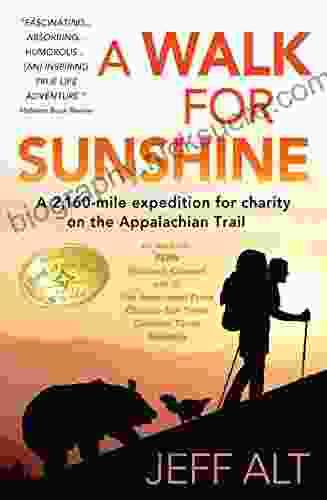
 Israel Bell
Israel BellEmbark on an Epic 160-Mile Expedition for Charity on the...
Prepare yourself for an...
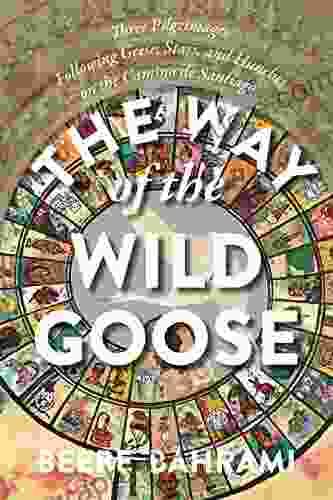
 Josh Carter
Josh CarterThe Way of the Wild Goose: A Journey of Embodied Wisdom...
The Way of the Wild Goose is an ancient...

 Allen Parker
Allen ParkerMastering the Art of Bean Fly Casting: A Comprehensive...
Fly fishing,...
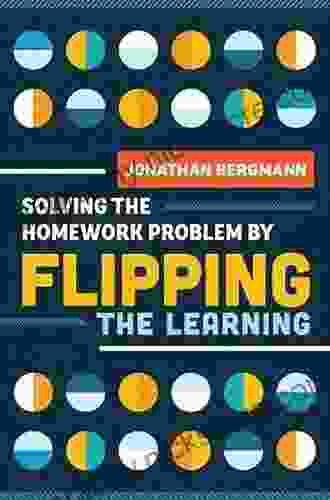
 Aaron Brooks
Aaron BrooksSolving the Homework Problem by Flipping the Learning
What is flipped...

 Fletcher Mitchell
Fletcher MitchellThe Jane Butel Library: A Renewed Source of Knowledge and...
The Jane Butel...
4.3 out of 5
| Language | : | English |
| File size | : | 556 KB |
| Text-to-Speech | : | Enabled |
| Enhanced typesetting | : | Enabled |
| Word Wise | : | Enabled |
| Print length | : | 372 pages |
| Screen Reader | : | Supported |


